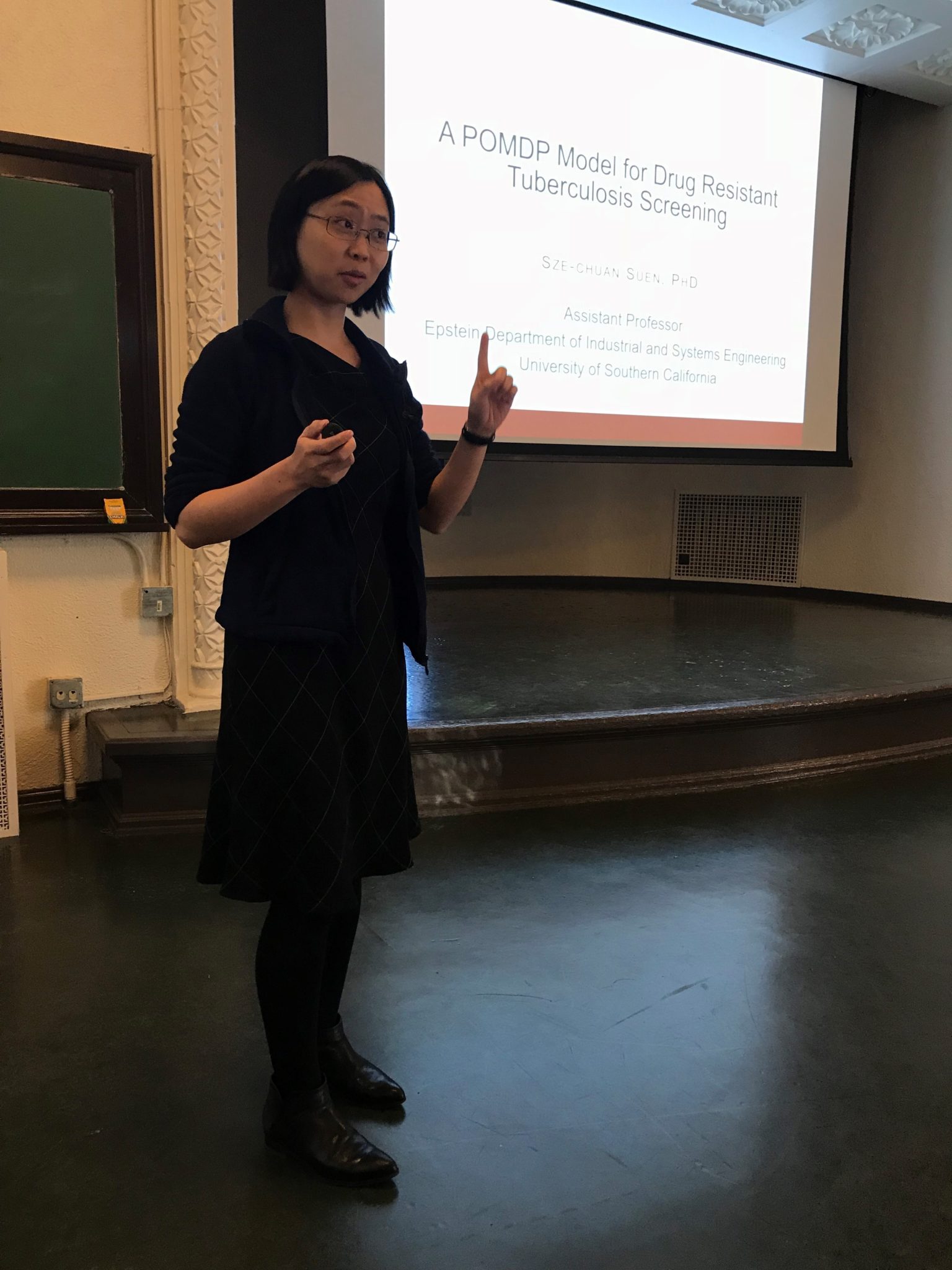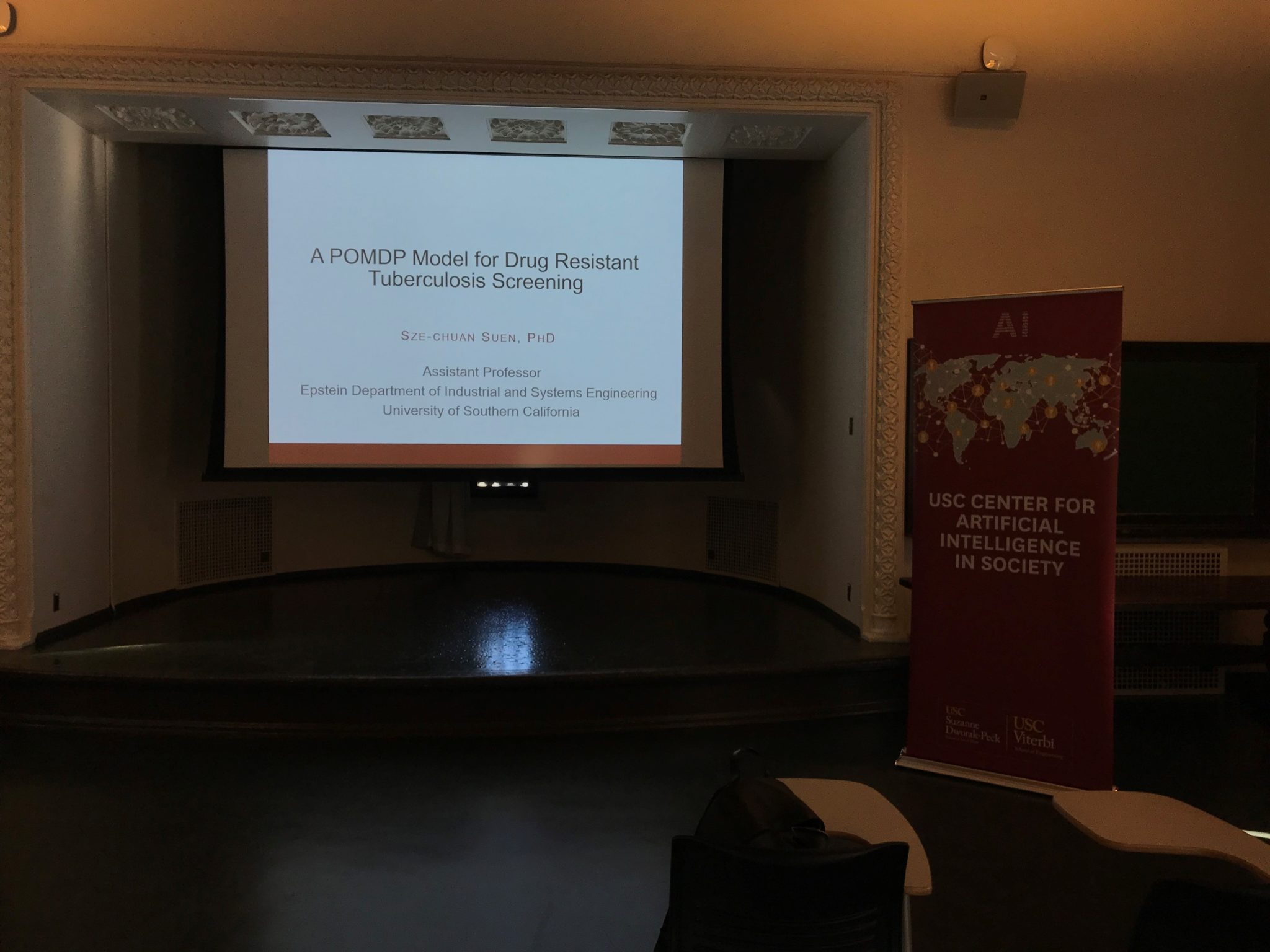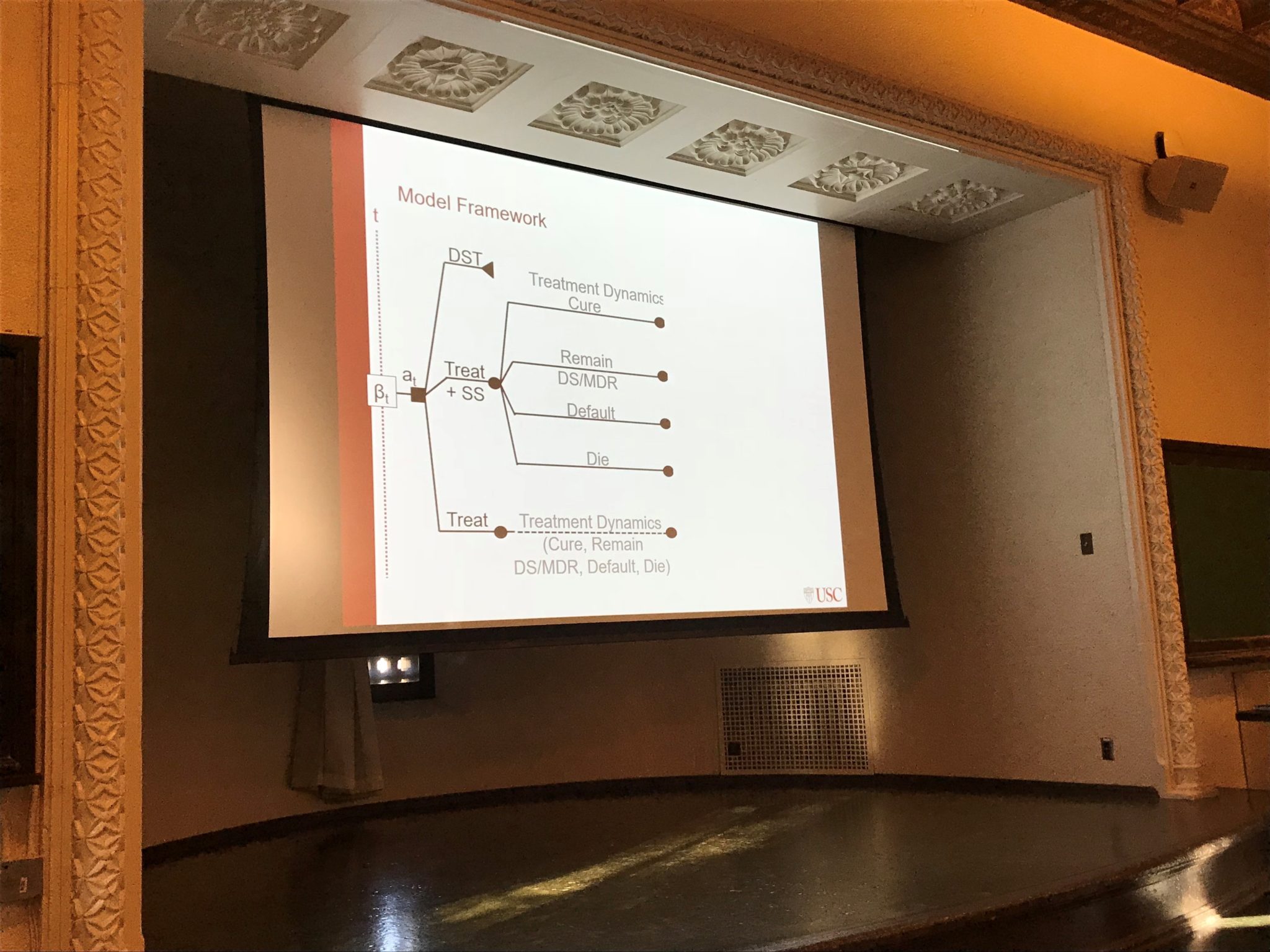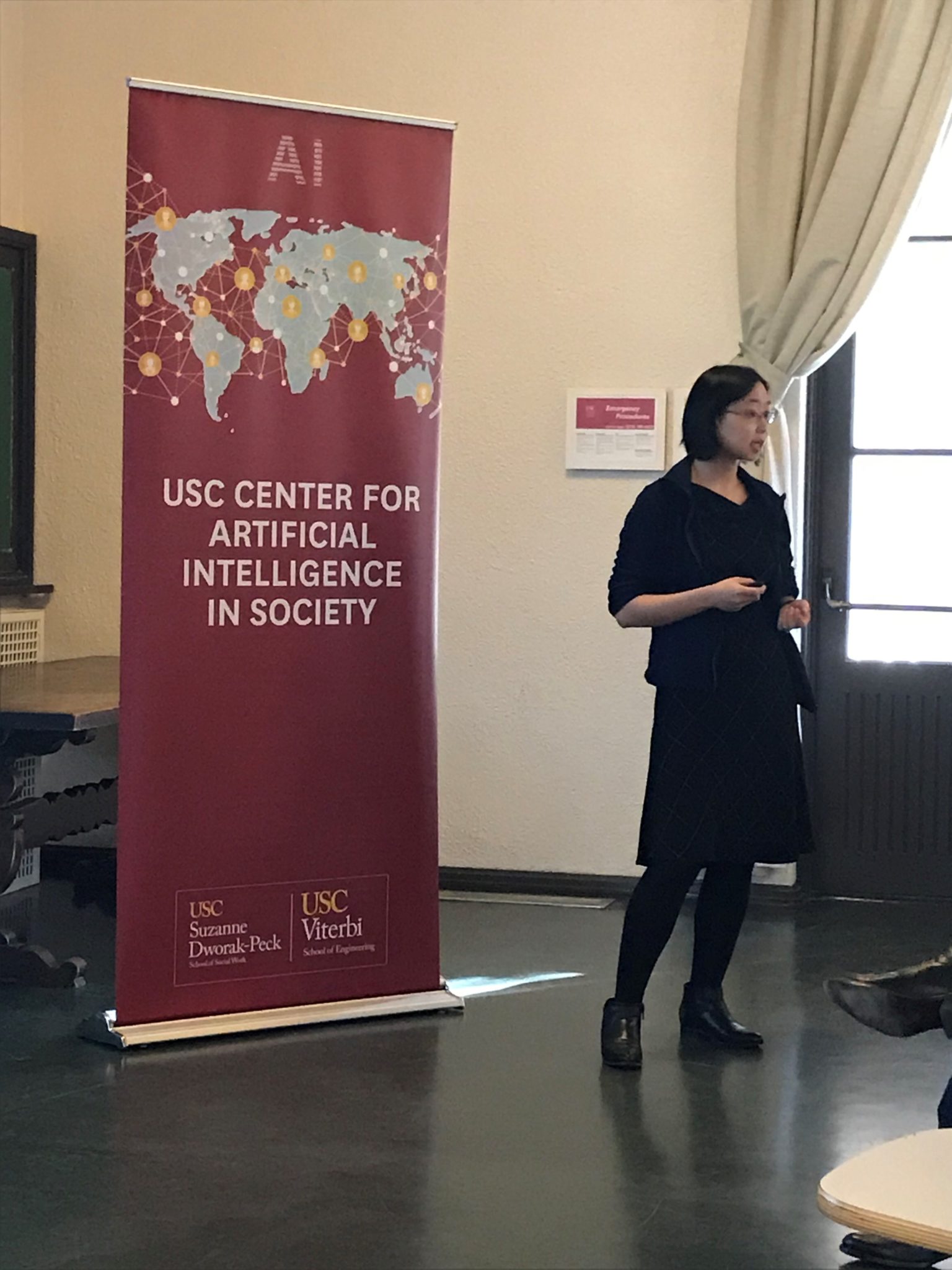USC CAIS seminar: Dr. Sze-Chuan Suen

Dr. Suen speaking during her USC CAIS seminar.
Dr. Sze Chuan Suen of the USC Viterbi School of Engineering lectured on her recent research aimed toward controlling the spread of tuberculous (TB) in India, where over 24% of global TB cases occur. The major challenge to TB control in India is limited funding for new diagnosis technology required to differentiate between drug resistant and drug sensitive TB. Dr. Suen’s research revolved around deciding which patients needed the new diagnosis technology, Drug Sensitivity Testing (DST), versus first-line sputum smear (SS) tests. SS testing is currently administered during patient intake under the current policy.
Her research question was geared toward lowering financial costs and improving the overall health of the Indian population. In order to find the most viable option for patients, Dr. Suen used the Markov decision process (POMDP) to decide which patients needed first-line therapy, testing with an SS test, or needed the DST. Dr. Suen also took into account that certain regions in India had differing demographics (age and sex). These demographic factors resulted in different mixing patterns dictating the transmission rate based on who patients came into contact with, duration of exposure, and whether they would seek treatment.

Introductory slide of Dr. Suen’s presentation.

The model Dr. Suen used.

Dr. Suen answering a question.
Ultimately, her simulation results using POMDP showed that the optimal policy is the utilization of the new DST technology for all patients at first TB diagnosis, which would save up to $4,019 per patient, compared to the current standard of SS testing. This finding would save India over $1.9 billion annually. Dr. Suen concluded that the current SS and DST policy in place is suboptimal and that DST should be administered to all patients at initial diagnosis to prevent transmission. Her work unilaterally shows the impact that AI can have on positively altering health care policy in a global context.



